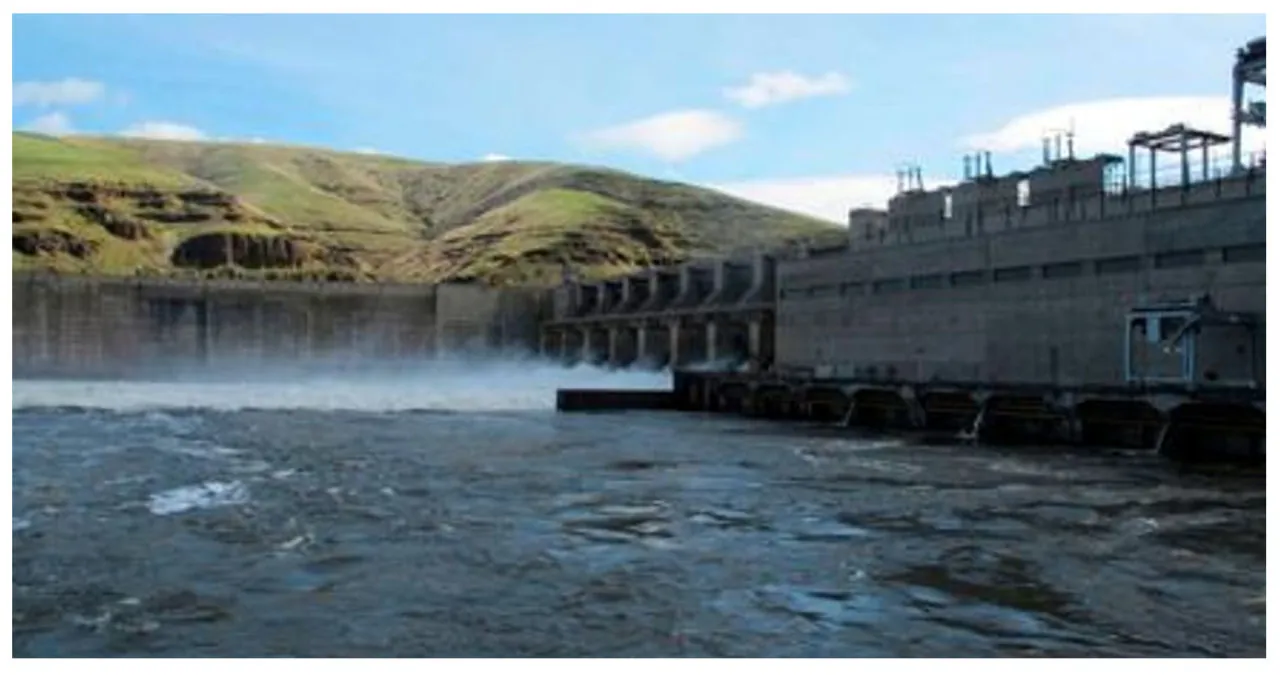Aiexpress – Republican lawmakers from the Pacific Northwest have introduced a bill that aims to prevent federal funding from being used to breach or modify the operations of the Lower Snake River dams in Washington state.
The “Defending Against Manipulative Negotiators” Act, also known as the DAMN Act, was brought forth by a group of Republican representatives. This includes Dan Newhouse and Cathy McMorris Rodgers from eastern Washington, Lori Chavez-DeRemer and Cliff Bentz from Oregon, and Russ Fulcher from Idaho.
The measure also aims to prohibit the implementation of the Columbia Basin Restorative Initiative, which was announced in December by the Biden Administration.
The White House Council on Environmental Quality has been working on an initiative for the past two years. This initiative aims to restore wild salmon populations and promote tribal-sponsored renewable energy production in the Snake and Columbia river systems within the next decade. It is important to note that this initiative does not completely dismiss the possibility of breaching the dams.
The Democratic governors of Washington and Oregon, along with four regional tribal nations, are in support of the pact. However, the State of Idaho opposes it. The pact has been filed in the U.S. District Court in Oregon. Its purpose is to temporarily halt the ongoing litigation against the federal government’s operation of the dams. Tribes, as well as environmental and sportsmen groups, argue that these dams have greatly impacted the salmon population, particularly in their migration between the Pacific Ocean and their spawning grounds in Idaho.
According to the GOP House members, only Congress holds the authority to breach the dams. They have criticized the Biden Administration for negotiating the initiative without involving congressional representatives and ignoring the concerns of regional residents who depend on the dams for hydroelectric power, as well as the interests of agriculture, barging, and recreation.
“The Biden Administration’s actions have gone too far with its blatant, hypocritical attack on the Lower Snake River Dams,” stated Newhouse in a press release. He was referring to the administration’s push for clean renewable energy while simultaneously considering a “de facto” breach of the dams by reducing water levels below the minimum required for hydroelectric generation.
The U.S. Army Corps of Engineers operates Ice Harbor, Lower Monumental, Little Goose, and Lower Granite dams. These dams are situated between the Tri-Cities and Lewiston, Idaho, and fall within the congressional districts represented by Newhouse and McMorris Rodgers.
In a recent press release, the White House emphasized the importance of investments in the initiative. It stated that these investments would play a crucial role in maintaining energy reliability, transportation, recreation, irrigation, and other essential services. The release even mentioned the possibility of Congress authorizing the breaching of the four Lake Snake River dams, highlighting the need for preparedness in such scenarios.
On Tuesday, January 30th, Chairwoman McMorris Rodgers of the House Energy and Commerce Committee is set to hold a livestreamed subcommittee hearing. The purpose of this hearing is to gather insights from key representatives of various organizations including the Council on Environmental Quality, U.S. Department of Energy, National Oceanic and Atmospheric Administration, and Bonneville Power Administration.
In May 2001, the National Wildlife Federation and the State of Oregon filed a lawsuit against the National Marine Fisheries Service, claiming that the federal officials neglected their duty to safeguard migrating salmon. Over time, additional plaintiffs, including Earthjustice, the Sierra Club, Northwest Sportfishing Industry Association, and Northwest Energy Coalition, have joined the litigation.
McMorris Rodgers and Newhouse are sponsors of the Northwest Energy Security Act, which was introduced last March. The act aims to operate the Columbia River power system in alignment with a 2020 environmental impact statement. The focus is to improve salmon passage without breaching the dams.

